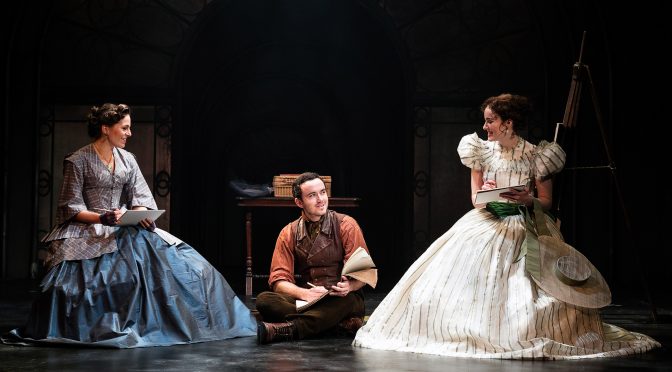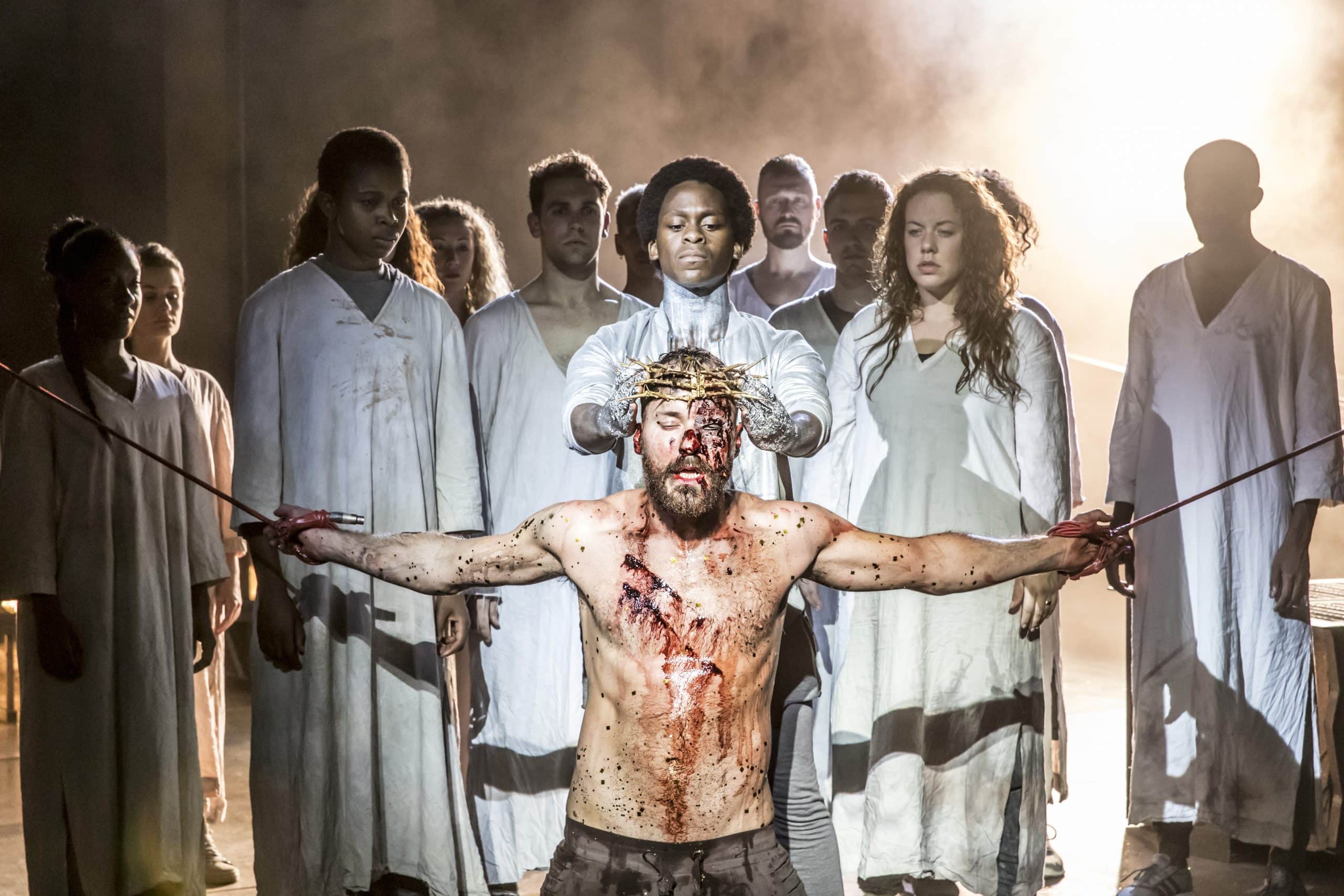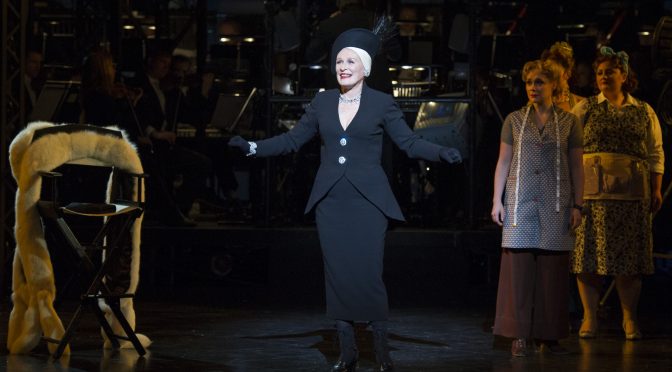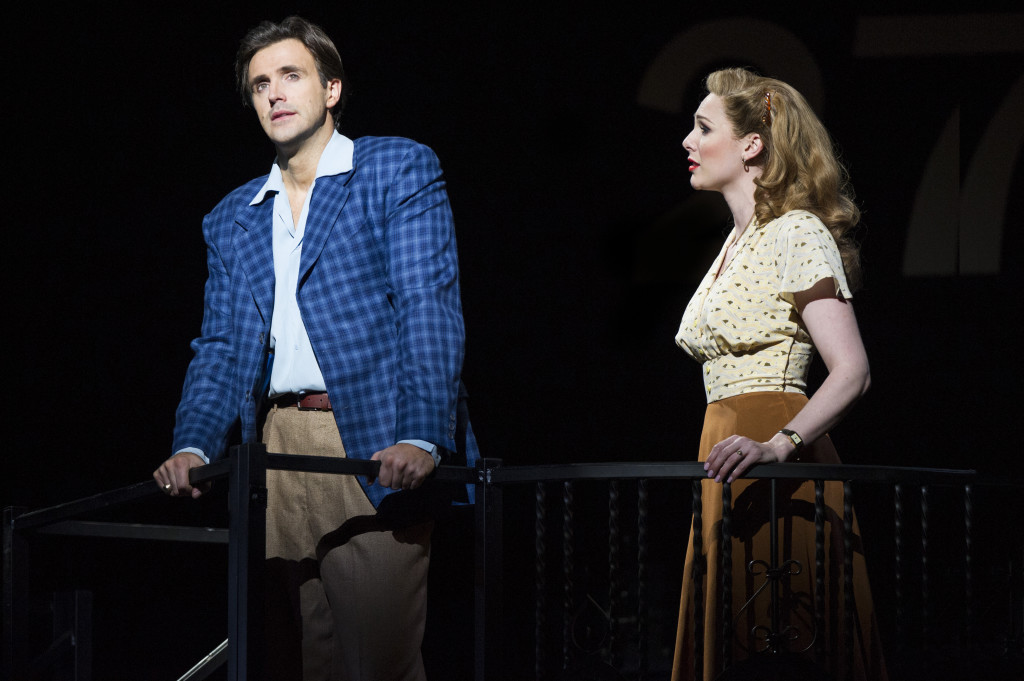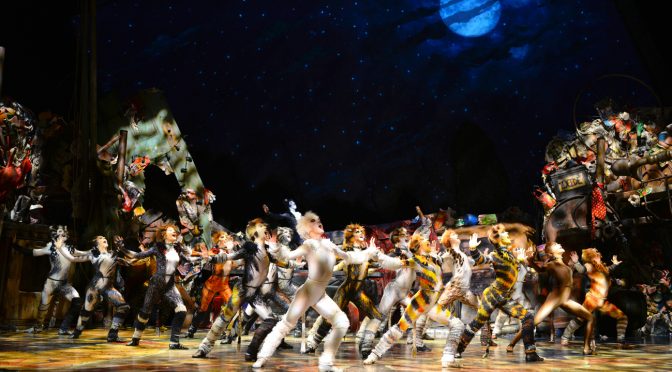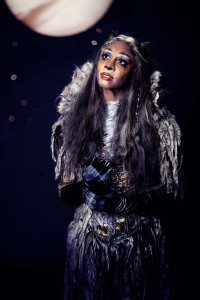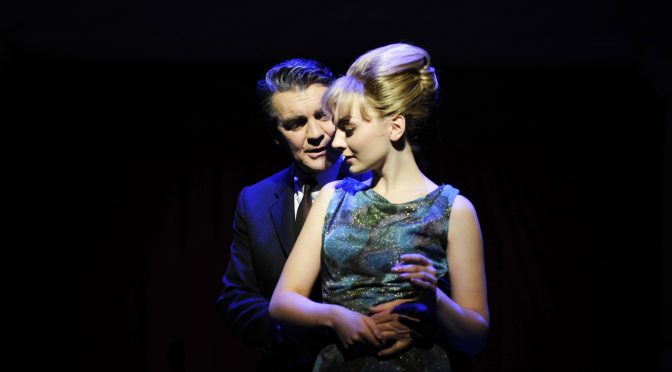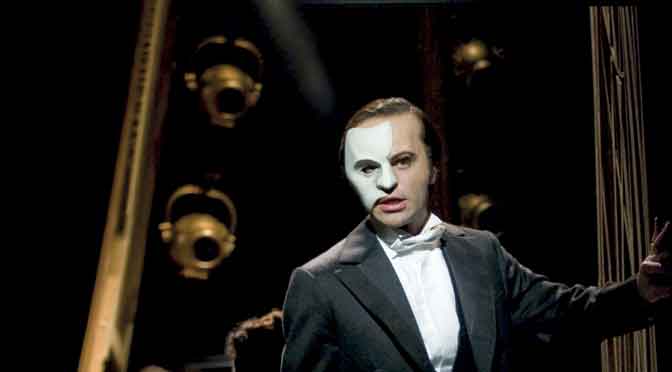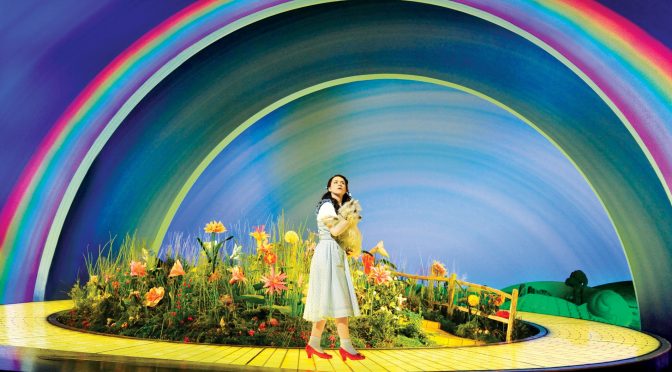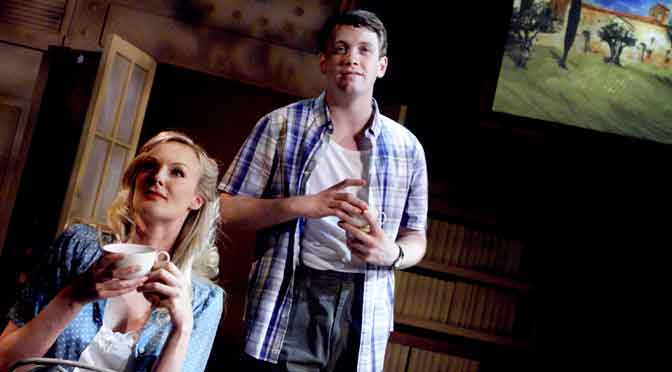If memory serves me correctly, the West End debut of Andrew Lloyd Webber’s musical, at the Palace Theatre back in 2004, was a grand affair with ambitious, if ineffective, projections and a big orchestra that served a lush score superbly. For its first revival the music has been revised, by Lloyd Webber himself, to suit a smaller setting. As a result, the show joins a string of revivals that remind us how versatile the composer’s work is. This is a piece that impressed first time around but now it is a musical to fall in love with.
The Woman in White is impressively plot driven. It’s based on Wilkie Collins’ 1859 novel, expertly condensed by Charlotte Jones, with its Victorian morality deftly handled to embrace current concerns about equality. This is a great yarn – a romance and a crime mystery that flirts with the supernatural – following the adventures of the Fairlie sisters and the mysterious titular character who has a secret that will change their lives. David Zippel’s lyrics serve the story superbly, even if all that exposition makes them occasionally prosaic. Director Thom Southerland aids the clarity to ensure we are entertained – with a staging full of atmosphere via strong work with the striped back set from designer Morgan Large.
For all Southerland’s accomplishments it is his cast that makes the show stand out – a particularly strong group of singers with exquisite control appropriate to the precision in both the score and the production.
Ashley Stillburn makes an appealing hero, as the Fairlies’ drawing teacher and love interest, who becomes a man of action when danger arrives. His rival in love is Chris Peluso as Sir Percival Glyde – “a liar, a braggart and a philistine” – full of charisma and danger. Glyde’s partner in crime is Count Fosco, played by Greg Castiglioni, who comes dangerously close to stealing scenes as he has the musical’s only light relief (credit where it’s due, for an Italian accent that isn’t just a cheap gag).
The trio of female roles secure more praise. The wealthy heiress Laura might be a little too wet but Anna O’Byrne tackles the role sensibly and gives her as much spirit as possible. Similarly, her half-sister Marian is one of those martyred women, beloved by Victorians, that can annoy – but in the role Carolyn Maitland makes her devotion believable and her sacrifices moving. Finally, Sophie Reeves, who plays the ghostly woman in white, delivers an impressive portrayal of mental illness. The whole cast tackles the satisfyingly complex storyline and its melodrama while singing to perfection, making this a clear five-star show.
Until 10 February 2018
Photo by Darren Bell

